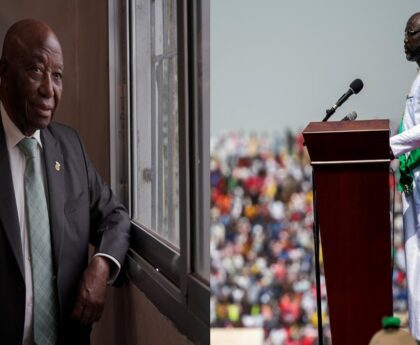As Liberia inches closer to its next presidential election, a palpable tension has enveloped the political landscape, centered around President George Weah’s perceived fear of losing the presidency to Ambassador Joseph Boakai. This article explores the dynamics of this fear, examining the political undercurrents and potential implications for Liberia’s future.
A Shifting Political Landscape:
President George Weah, a former football star turned politician, emerged victorious in the 2017 presidential election, securing a historic win that symbolized a shift in Liberia’s political landscape. However, as the nation approaches the run-off elections, the atmosphere is charged with speculation and uncertainty. One of the key figures challenging President Weah’s bid for re-election is Ambassador Joseph Boakai, a seasoned politician with a wealth of experience.
Weah’s Apprehensions:
The fear of losing the presidency is not an uncommon sentiment for an incumbent facing a re-election bid. In President Weah’s case, this fear is intensified by the growing popularity and political acumen of Ambassador Boakai. Boakai’s long-standing political career and his service as Liberia’s Vice President under Ellen Johnson Sirleaf provide him with a strong political foundation that resonates with a significant portion of the electorate.
Challenges Faced by Weah’s Administration:
President Weah has faced a myriad of challenges during his tenure, ranging from economic struggles to criticisms about the effectiveness of his policies. These challenges have contributed to a sense of vulnerability within the administration, heightening the stakes of the run-off election. Weah’s fear of losing the presidency may be fueled by concerns about public dissatisfaction and the potential for a shift in voter sentiment.
Boakai’s Appeal:
Ambassador Boakai’s appeal lies in his reputation as a steady and experienced hand in Liberian politics. He is seen by many as a figure capable of providing stability and addressing the nation’s challenges with a measured approach. Boakai’s support base includes those who may be disenchanted with the current administration’s handling of economic issues, governance, or other pressing concerns.
Potential Implications for Liberia:
The fear of losing the presidency to Ambassador Boakai has the potential to influence the political landscape in Liberia. It could prompt President Weah’s administration to intensify its efforts to address pressing issues and regain public trust. On the other hand, it may also lead to increased political polarization, with both sides engaging in strategies to secure voter allegiance.
Conclusion:
As Liberia stands on the cusp of another presidential election, the fear of losing the presidency is a natural aspect of the political process. President George Weah’s apprehensions regarding Ambassador Joseph Boakai’s candidacy highlight the competitive nature of democratic politics. It is crucial for both candidates to engage in a fair and transparent electoral process that upholds the principles of democracy, ensuring that the will of the Liberian people is respected, regardless of the election’s outcome. The coming days will undoubtedly be a test of Liberia’s democratic resilience and its ability to navigate political transitions peacefully.




